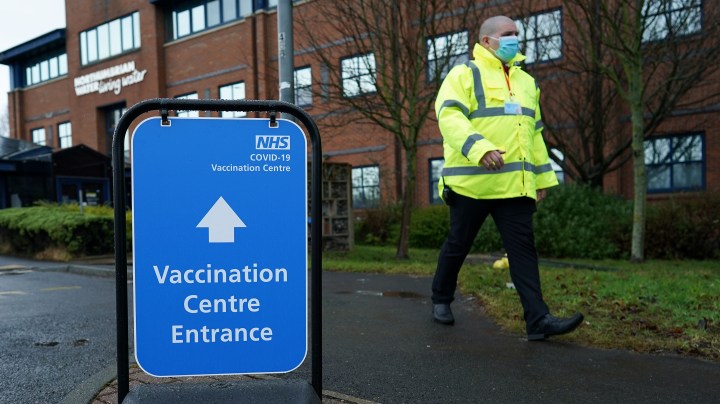
Blockchain technology, used in Bitcoin, aids U.K. vaccine program
Blockchain — the system of decentralizing a database and distributing it across an entire network of computers — brought us Bitcoin and other cryptocurrencies. It’s been used to make supply chains more transparent and create secure records that cannot be altered unilaterally.
Now the technology is being used in the COVID-19 immunization program of Britain’s state-owned National Health Service.
The vaccines need to be stored at frigid temperatures to be effective. In the case of the Pfizer shot, the required range is minus 60 to minus 80 Celsius.
“Storing the drugs in the correct way is absolutely critical,” said Tom Screen, technical director of the British technology company Everyware.

The company is using sensors and cloud computing to remotely monitor the temperature of NHS refrigeration units.
“If a fridge does go out of the temperature range, the hospital gets an automated alert,” Screen said, adding that without such notification the hospital could be forced to discard precious vaccine supplies.
Data security is a crucial part of Everyware’s modus operandi, especially when it comes to NHS facilities. The health service suffered a serious cyberattack in 2017 and was subsequently criticized in a parliamentary report for being unprepared for hackers.

To help with cybersecurity, Everyware has turned to Hedera, a U.S.-based platform that offers a distributed ledger technology like blockchain, which gave birth to Bitcoin. Hedera CEO Mance Harmon said it’s ideal for a COVID-19 immunization program.
“Having a tamper-proof record-keeping system that can be shared across the vaccine supply chain is always important, but critically so here for the COVID vaccines,” Harmon said.
Hedera’s chief executive believes that decentralized computer networks with hundreds or even thousands of participants can play an important role in other aspects of pandemic management — to combat vaccine counterfeiting, for example, and create unforgeable vaccination certificates.

Trust is the key, according to Jillian Godsil, an author who’s written extensively about blockchain. She said that as the pandemic has spread insecurity, distributed ledgers have come into their own.
“People can lie. Institutions can lie. Governments can lie. But blockchain cannot lie,” she said.
As a result, Godsil said, more and more people are entrusting their health — and not just their wealth — to this technology.
There’s a lot happening in the world. Through it all, Marketplace is here for you.
You rely on Marketplace to break down the world’s events and tell you how it affects you in a fact-based, approachable way. We rely on your financial support to keep making that possible.
Your donation today powers the independent journalism that you rely on. For just $5/month, you can help sustain Marketplace so we can keep reporting on the things that matter to you.












